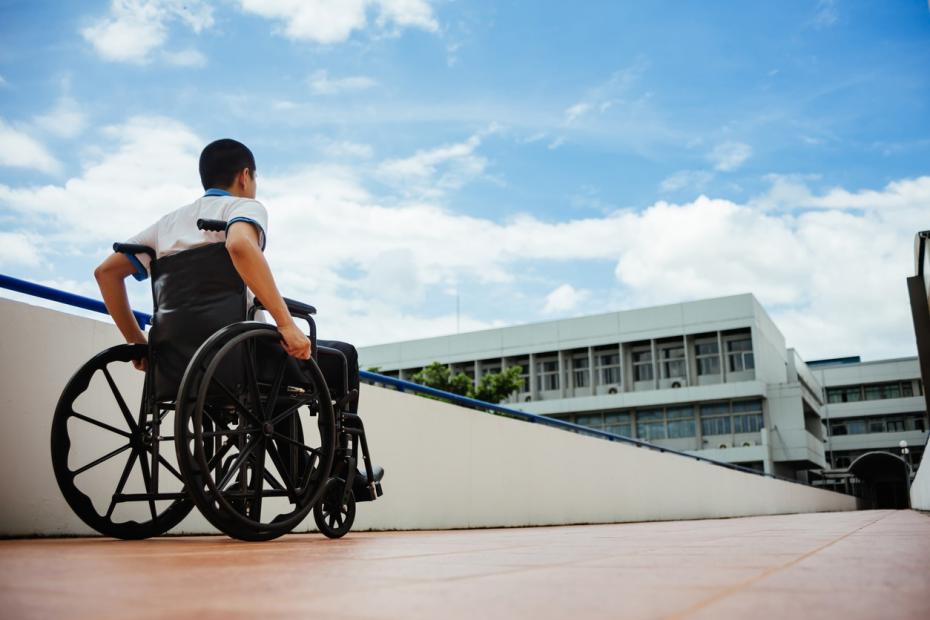Disability is far more common than many people realise. In the 2022-23 financial year, 24 per cent of the population declared having a disability. While only a small percentage of disabled individuals are born with their condition, the vast majority acquire theirs later in life due to illness, accidents or ageing. Disability is not a rare or niche experience. Despite this, universities still treat it as such.
Given these figures, one might expect disabled staff to be well represented in academia. However, this is not the case. Only about 6.8 per cent of academic staff have declared a disability, according to the Higher Education Statistics Agency (Hesa). Given the national figures, this number seems oddly low. So, what’s going on?
One major issue is underreporting; many disabled academics choose not to disclose their disability, often out of fear of discrimination and career stagnation – or simply because they don’t trust their institution to provide meaningful support. This is compounded by the fact that disability is most often discussed in the context of students, not staff, according to a 2019 study by Wendy Merchant and colleagues.
There is also a tendency to focus on visible disabilities – conditions that align with the stereotypical image of disability, reinforcing rhetoric such as, “You don’t look disabled; you look fine.” But what about those with invisible disabilities? Mental health conditions, autism, diabetes, chronic pain and neurological disorders all fall into this category, yet are often overlooked.
For some academics, particularly those from minoritised backgrounds, navigating disability is further complicated by racial and gendered stereotypes. The “strong Black woman” trope may pressure staff to mask their struggles, making disclosing a disability even less likely. Worse still, the belief that Black people experience less pain – a myth rooted in medical racism – can lead to their disabilities being dismissed or ignored.
- Collection: Being Black in the academy
- Supporting students and staff with disabilities in HE
- ‘It just isn’t safe to disclose’
What needs to change?
Government schemes integrated into higher education policies that look great on paper don’t mean much if they aren’t enforced. Consider the Disability Confident scheme, for example. It’s meant to encourage employers to recruit and support disabled staff, but its impact is inconsistent. Without proper accountability, many institutions sign up simply for the PR boost rather than because they intend to implement real change.
Unfortunately, discrimination against academics with invisible disabilities is a persistent problem. Most commonly, this discrimination takes the form of a failure by an institution to address the disadvantages caused by a disability. It also manifests itself through unfavourable treatment of an academic based on their disability. Of course, there are no absolute obligations/bars on an institution’s actions, but we see discrimination nonetheless.
Two examples serve to demonstrate the different forms in which this problem can manifest:
The first involves an academic with mental health, visual and neurological disabilities. Because of these, they struggle to meet their institution’s expectations; they are unable to produce research papers as quickly as peers (though there is no question as to the quality) and to manage certain pastoral tasks. Unfortunately, in this case, the individual was disproportionately sanctioned for failing their probationary period. Their institution also completely disregarded occupational health recommendations, particularly around their mental health, both throughout their employment and during the disciplinary and performance processes. This precipitated a further breakdown in their health.
The second involves an academic who has moderate autism spectrum disorder which prevents them from distinguishing between offensive and unoffensive terms. This individual was subject to disciplinary proceedings because online comments that were deemed offensive failed to comply with their institution’s behaviour policies, though they were arguably only moderately offensive. The institution failed to make reasonable adjustments for the individual, such as additional guidance, support or training. It did not take this into account during the disciplinary proceedings or the application of its policies.
Both cases are noteworthy for the institutions’ lack of understanding and failure to make reasonable adjustments required under the Equality Act 2010.
One way to avoid such situations is to provide enhanced training on:
- Managing disabilities and stressors in the workplace
- The legal obligations of the workplace in supporting staff with disabilities.
Encourage staff to disclose their disability
Staff must disclose their disabilities to allow institutions to support them appropriately. To enable that, universities must take action in the following ways:
Make the adjustments process clear and stigma-free: establish clear policies, facilitate open conversations and encourage a genuine commitment to inclusion.
Take accountability: reporting on recruitment, retention, workplace adjustments and the lived experiences of disabled staff can highlight gaps and push institutions to take real action. Honest reporting isn’t just about ticking boxes, it’s about making universities truly inclusive. Hesa gives us numbers, but do they really show progress or just make institutions look good on paper?
Build support groups and peer networks to foster solidarity and advocacy: being part of a peer support group has been a game-changer for me. It allows me to share experiences, ask for advice and navigate workplace challenges without fear of judgement. Knowing others face similar struggles makes me feel less alone, and having instant access to support means I can get help when I need it most. It’s also empowering to be surrounded by others pushing for change. In a system that often overlooks us, this kind of solidarity is a lifeline.
Challenge silence and stigma
Schemes such as Can’t Buy My Silence commit many universities to not using non-disclosure agreements to silence people who come forward to raise complaints. Several universities have signed up for this scheme, and, in principle, they empower academics and discourage bad behaviour because it cannot be covered up. The fact the commitment is not legally binding makes it all the more vital that institutions respect them rather than abandon them when it is inconvenient.
No one should have to choose between their health and their job. When staff feel supported, they’ll be more likely to disclose a disability. For this to happen, universities need to stop treating support as an afterthought and start backing up their diversity promises with real action.
Christina Dzineku is an independent doctoral researcher, lecturer and consultant. James Murray is a partner at Doyle Clayton law firm and a research fellow in law and policy at the University of Buckingham.
If you’d like advice and insight from academics and university staff delivered direct to your inbox each week, sign up for the Campus newsletter.




comment1
(No subject)